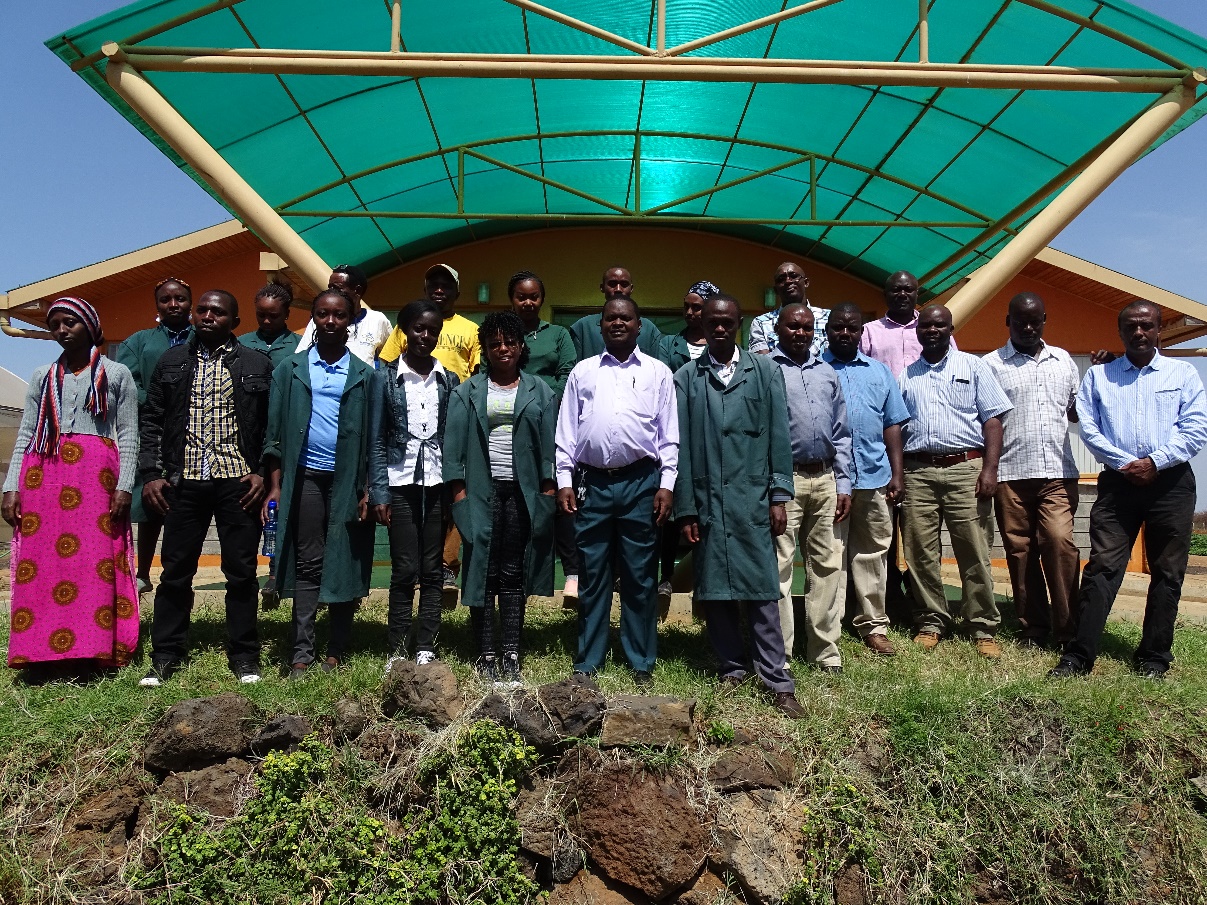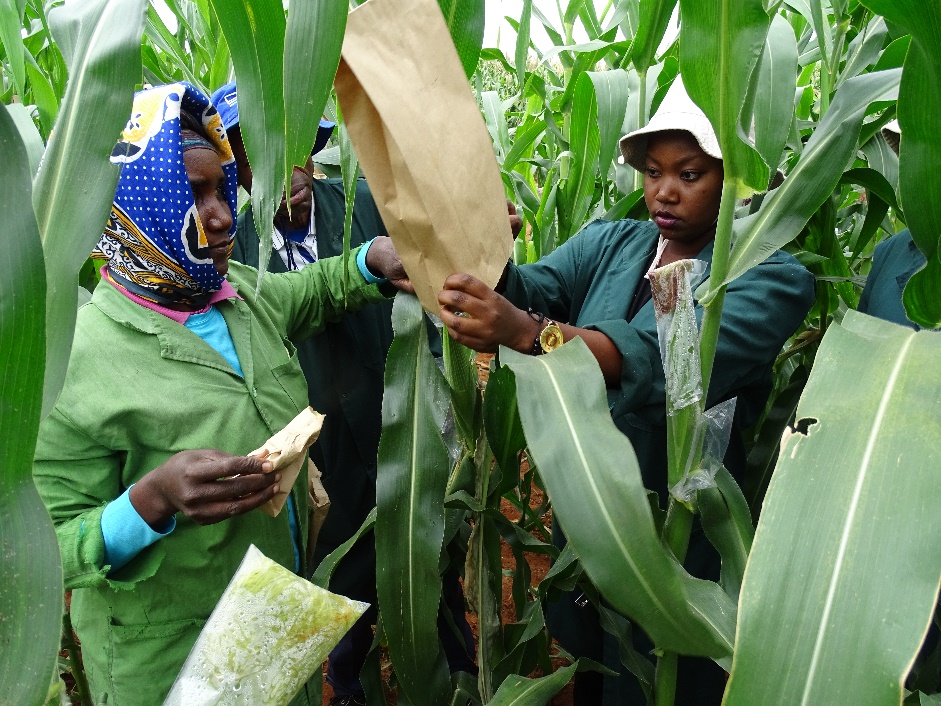
NAIROBI, Kenya (CIMMYT) – A staggering 80% of the 67 million inhabitants of central Africa’s Democratic Republic of Congo (DRC) rely on maize for food, despite the country’s underdeveloped national maize breeding and seed production program. The ravages of war may have limited development efforts, but renewed interest in the DRC by regional and global development partners will provide much needed infrastructure and knowledge sharing support.
Even with abundant resources such as water, labor and fertile land, availability of and access to quality seed remains a major hindrance to a thriving agricultural sector in the DRC. According to the state-run agricultural organization, Institut National pour l’Etude et la Recherche Agronomiques (INERA), North and South Kivu provinces in particular still import food from neighboring Rwanda, Uganda and Tanzania, with maize taking up the lion’s share of purchases.
Strategic public-private sector partnerships in agricultural research and development, such as the one between INERA, the International Maize and Wheat Improvement Center (CIMMYT) office in Kenya, and the Alliance for Green Revolution in Africa (AGRA), are an invaluable investment towards growth and sustainability of maize production in the region. AGRA funds multiple agricultural research projects in the DRC, while CIMMYT is renowned for its excellence in maize research globally. It is against this backdrop that breeders, agronomists, technicians and students gathered at the drought-tolerant (DT) maize site in Kiboko, Kenya, for a ten-day training course dubbed ‘Pollinations, Nursery and Trials Management’. The training, held from June 13 – 23, 2016, and jointly supported by CIMMYT and AGRA, and hosted by CIMMYT, emphasized hand pollination in maize variety development and seed multiplication.
Remarks by Stephen Mugo, CIMMYT Regional Representative for Africa, and Maize Breeder, highlighted training as one of the ways CIMMYT supports capacity building and development in the region.
He said, “It is my hope that knowledge and skills imparted during this course will be shared with other professionals at INERA, to improve maize breeding and production capabilities in the DRC.”
The course, organized by CIMMYT Maize Breeder, Lewis Machida, featured a mix of detailed lectures and practical exercises, expertly delivered by various CIMMYT scientists. Presentations covered topics such as basic seed production (hybrids and open pollinated varieties) and maintenance, breeding methods, and maize pollinations including hand pollination.

Hand pollination
Pollination, the process responsible for reproduction and continuity of plant life, is also a breeder’s playground, enabling shuffling of genes, plant adaptation and evolution. In maize breeding, this means development of seeds with tolerance to stresses such as drought, heat, pests and diseases.
Hand pollination, the general term for human intervention in this delicate process, can be further classified into self pollination, and cross pollination. As the name suggests, hand pollination is done by hand, calling for extreme care to minimize contamination and damage of plants.
“Successful production and maintenance of varieties depends largely on hand pollination. Without this process, it would be difficult to produce genetically pure seeds,” says Mugo, adding, “For this reason, hand pollination is considered the core of variety development in maize breeding.”
For the practical sessions of the course, participants deftly carried out the steps in hand pollination, including shoot bagging, pollen collection & placement, and detasseling.
Elois Cinyabuguma, Manager of INERA’s Cereal Unit, shared that the training offered much needed technical skills to scale up seed production in his country, saying, “With CIMMYT germplasm, and sound technical knowledge on multiplication, storage and pest & disease management, DRC is well on its way to setting up a well-rounded maize development program.”
Beyond building the DRC’s capacity for maize breeding and production in general, lessons from the training will be implemented first in North and South Kivu provinces, in hopes of reducing or eliminating maize imports. The event was also a unique opportunity to enhance collaboration among INERA, CIMMYT and AGRA, in anticipation of future shared projects pertaining to maize research, production and distribution.
All participants were issued with a certificate on successful completion of the course.
Presentations from the course are available here.
 Capacity development
Capacity development 
